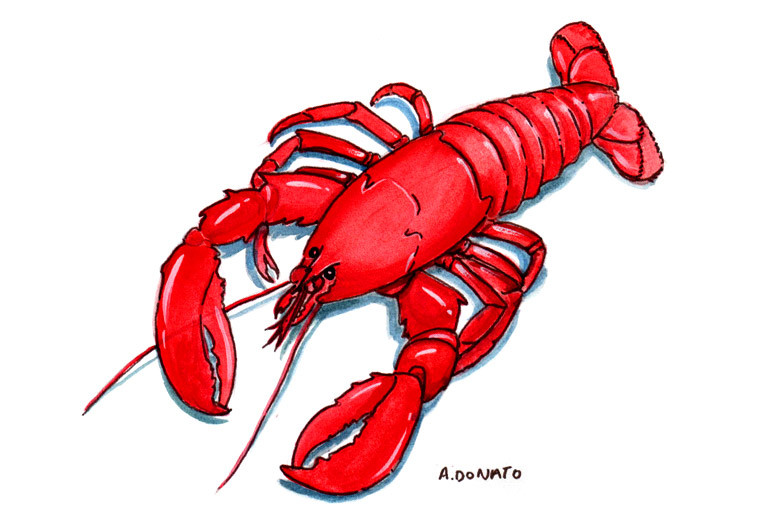
Common Names
- Kitosan
- Chitin
- Polyglucosamine
For Patients & Caregivers
Tell your healthcare providers about any dietary supplements you’re taking, such as herbs, vitamins, minerals, and natural or home remedies. This will help them manage your care and keep you safe.
What is it?
Chitosan has been promoted for weight loss and for cholesterol reduction. However, there is not enough evidence to support these uses.
The main ingredient in chitosan (KY-to-san) is chitin, an extract from the shells of sea creatures such as shrimp, lobster, and clams. It can also come from the cell walls of reishi mushrooms. Marketers promote chitosan as a weight-loss product, claiming it binds to fat and cholesterol to prevent their absorption. However, studies in people have found that chitosan did not increase levels of fat excreted. Other studies suggest it may help improve cholesterol levels. However, more trials are needed before definite conclusions can be drawn.
Chitosan is used as an ingredient in many medical-grade products including hydrogels and bandages to improve wound healing, as well as in dental applications. Scientists think it may enhance the process of new tissue formation.
What are the potential uses and benefits?
- For weight loss
There is not enough evidence to support the use of chitosan alone without dietary changes or exercise for weight loss. - To lower cholesterol
Some clinical trials support this use, but long-term effectiveness is unknown. - Topically, for improved wound healing
Lab studies and a clinical trial support this use.
What are the side effects?
- Constipation
- Flatulence, gas
- Bloating, abdominal cramping
What else do I need to know?
Do Not Take if:
- You are allergic to shellfish or mushrooms: Chitosan comes from either of these sources.
- You are taking warfarin (Coumadin): A case report indicates that chitosan may increase the blood-thinning effects of this drug.
For Healthcare Professionals
Scientific Name
Clinical Summary
Chitosan (KY-to-san) is a derivative of chitin, extracted from the exoskeleton of crustaceans, including shrimp, lobster, and clams, and from the cell wall of reishi mushrooms (13). Chitosan is used as an excipient in pharmaceutical formulations and in biomedical applications including wound dressings. It is also made into an edible film to protect food from spoilage (1). Chitosan is marketed as an all-natural marine fiber to help manage weight and cholesterol.
Animal models suggest antiobesity properties with chitosan (14) (15) (16) (17) and derivative products (18) (19). In one animal study, a combination of capsaicin and chitosan increased this activity (20).
Findings from human studies are conflicting. Although marketers of weight loss supplements claim chitosan can bind with fat in the intestine, some clinical trials did not find any increase in fecal excretion of fat or weight loss compared with placebo (2) (3) (4) (21). Other studies have had more positive results in combination with additional products or interventions (22) (23). Various studies and meta-analyses suggest chitosan may decrease diastolic blood pressure at higher dosages (32), improve serum lipid profiles (6) (8) (33) (34), and have some benefit on glycemic regulation (37). Benefit on weight management are mixed (35) (36) (38). More trials are needed before definitive conclusions can be drawn.
Chitosan may increase total plasma antioxidant activity and lower oxidative stress (9). Limited clinical data are available regarding efficacy for anemia or chronic renal failure (10).
Reported adverse events include constipation and gastrointestinal distress (2). Patients allergic to shellfish or mushrooms should use related supplements with caution.
Purported Uses and Benefits
- High cholesterol
- Weight loss
- Wound healing
Mechanism of Action
Chitosan is a natural polysaccharide that consists of glucosamine and N-acetylglucosamine copolymers (14). It has been described as biodegradable, nontoxic, non-immunogenic, and biocompatible (25), with properties similar to cellulose (2).
In an in vitro study, chitosan demonstrated antioxidant effects by reducing albumin carobonyls and hydroperoxides in a time-dependent manner (9).
In animal models, antiobesity effects may occur through serum leptin and C-reactive protein modulation (14) or AMPK activation and lipogenesis-associated gene inhibition (15). In porcine models, chitosan altered genes influencing appetite and feeding behavior in the small intestine (NPY), adipose tissue (Leptin), and the brain (HCRT, INSR, NMB, GHR, PPARG, NPY5R) (17). It also downregulated FABP2 gene expression, increased serum leptin, and significantly altered gut microbial populations (16). In high-fat diet-induced obese rodents, chitosan oligosaccharides improved dyslipidemia and prevented body weight gain by inhibiting adipocyte differentiation (19). As an insoluble fiber, low molecular weight chitosan polyglucosamines can bind to fat in the intestinal lumen, forming a complex that is partially utilized by colon bacteria and partially eliminated (22) (26) (27), but appropriate concentrations are needed. In one of these animal studies, it was suggested that the more likely mechanisms for weight loss could include bacterial energy wasting, as increased acetate and glucose excretion were also present, suggesting that larger amounts of lipids and glucose were available as fuel for bacteria in the colon (26).
Hypocholesterolemic effects from chitosan in murine models were not due to reduced cholesterol absorption efficiency or increases in fecal sterol output, so that a major bile acid-binding capacity was ruled out (28). The more likely scenario is that the fiber’s influence on satiation and satiety reduces food intake suppression and therefore cholesterol (29).
Human studies suggest that it is unlikely that chitosan binds fat in intestines, and could therefore not support this purported mechanism of action (21) (30).
Topical application enhances wound healing by stimulation of granulation tissue. Possible mechanisms include formation of a gel-like fibronectin matrix that facilitates inward epithelial cell migration and the formation of heparin-chitosan complexes that activate growth factors that bind to stabilized heparin (12).
Contraindications
As chitosan products are derived from shellfish or mushrooms, patients who are allergic to these substances should use chitosan with caution.
Herb-Drug Interactions
Warfarin (Coumadin): In a case report of an 83-year-old man with hypertensive cardiovascular disease, type 2 diabetes mellitus, and chronic atrial fibrillation who was maintained on warfarin, chitosan appeared to increase the anticoagulant effect of this drug (31).